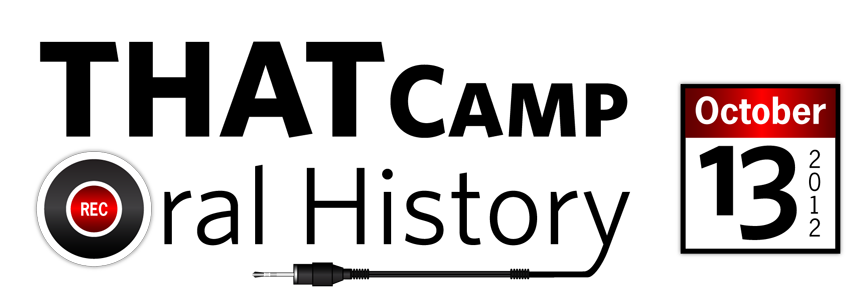I would like to form a session of those interested in discussing experiences with building an oral history collection whose primary function is to support a specific digital project. In my own experience working with colleagues, students, and community groups through CSU’s Center for Public History + Digital Humanities, we set up many of the nearly 800 oral histories that we have conducted with the explicit purpose of creating sound clips to use on the mobile history app we have been developing (as well as for a prior project). In doing so, we have, nonetheless, striven to adhere to best practices in oral history, ranging from archiving interviews to creating a space for our interviewees to tell their own stories whether they fit our ends or not. In at least one sense, our project-driven methodology, which places a premium on high-quality, uninterrupted personal narratives, may actually have enabled us to do a better job of being mindful of fostering such an environment.
Loosely related to the issues above, I am interesting in sharing experiences with others who have trained students or community members to conduct oral histories. In this, perhaps unsurprisingly, my experience has been mixed. A host of factors account for the challenges of transferring oral history skills to those who have never conducted an interview. Given the time constraints of the typical university semester, logistics of identifying interview subjects, scheduling, using recording equipment, finding suitable space, etc., have you developed any tried-and-true methods for producing robust results? I am also happy to share how I am guiding students to create digital projects (and why for the time being I have stopped having my students conduct oral histories). A selfish hope I’ll share is that I hope to be inspired to return project-driven oral history collecting to the center of some of my teaching in the not-too-distant future.

I like the idea of bringing this approach closer to those who have or have not done oral histories. The appeal of using mobile technology may attract younger audiences, but I wonder types of mobile digital technologies can be used effectively, given the length of some interviews. I did my first (and only) oral history interview in 2003 using a Sony Walkman recorder (instead of a cassette recorder, which I took along in case the digital plan failed), as it still allowed me to record for 3 hours max. How long can you record with a smartphone? Aside from that, this is a fascinating topic.
We regularly run workshops to train students, community members and heritage professionals in oral history. I’d be enthusiastic to participate and contribute to the teaching aspect of this session if I can…!